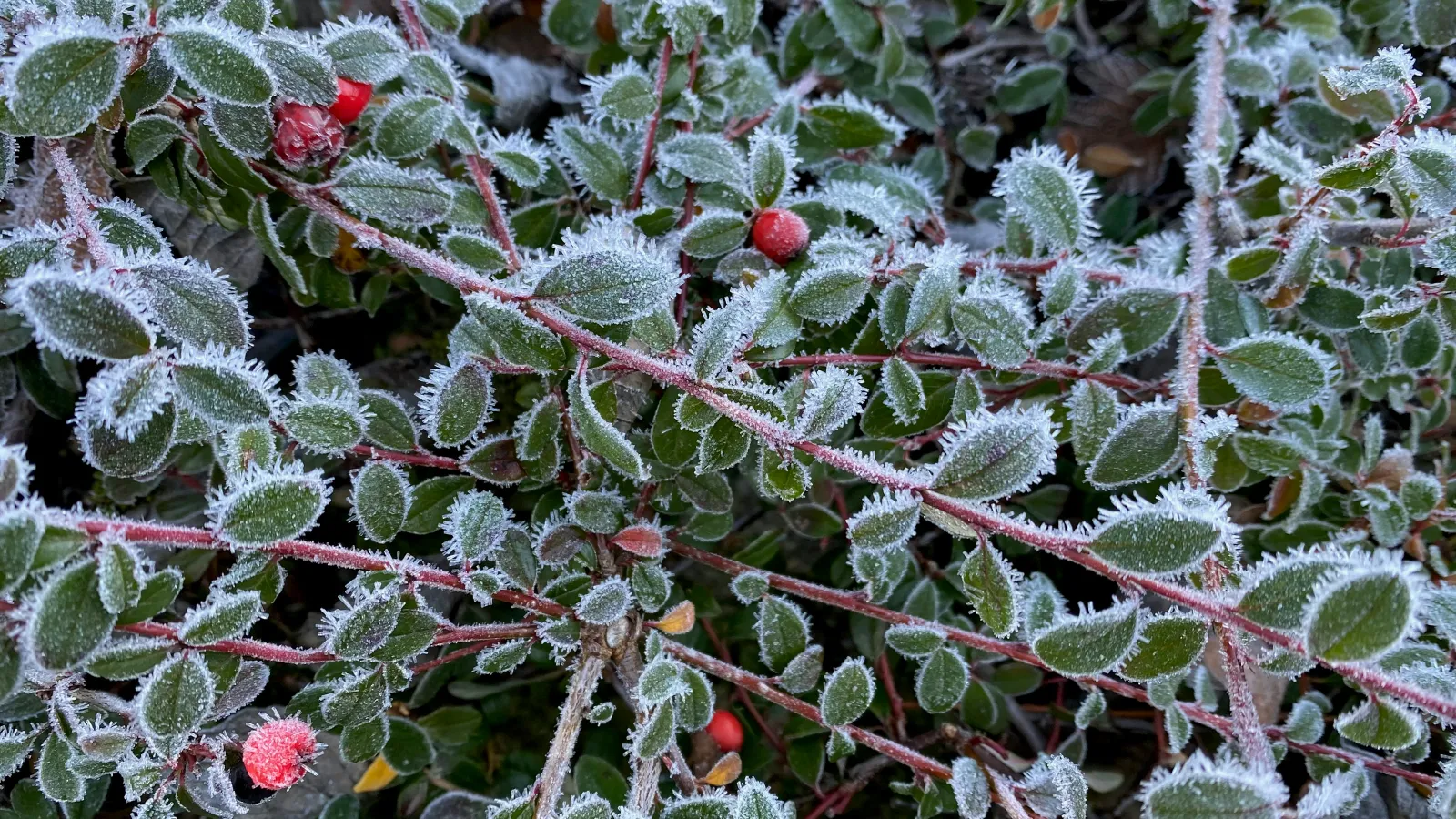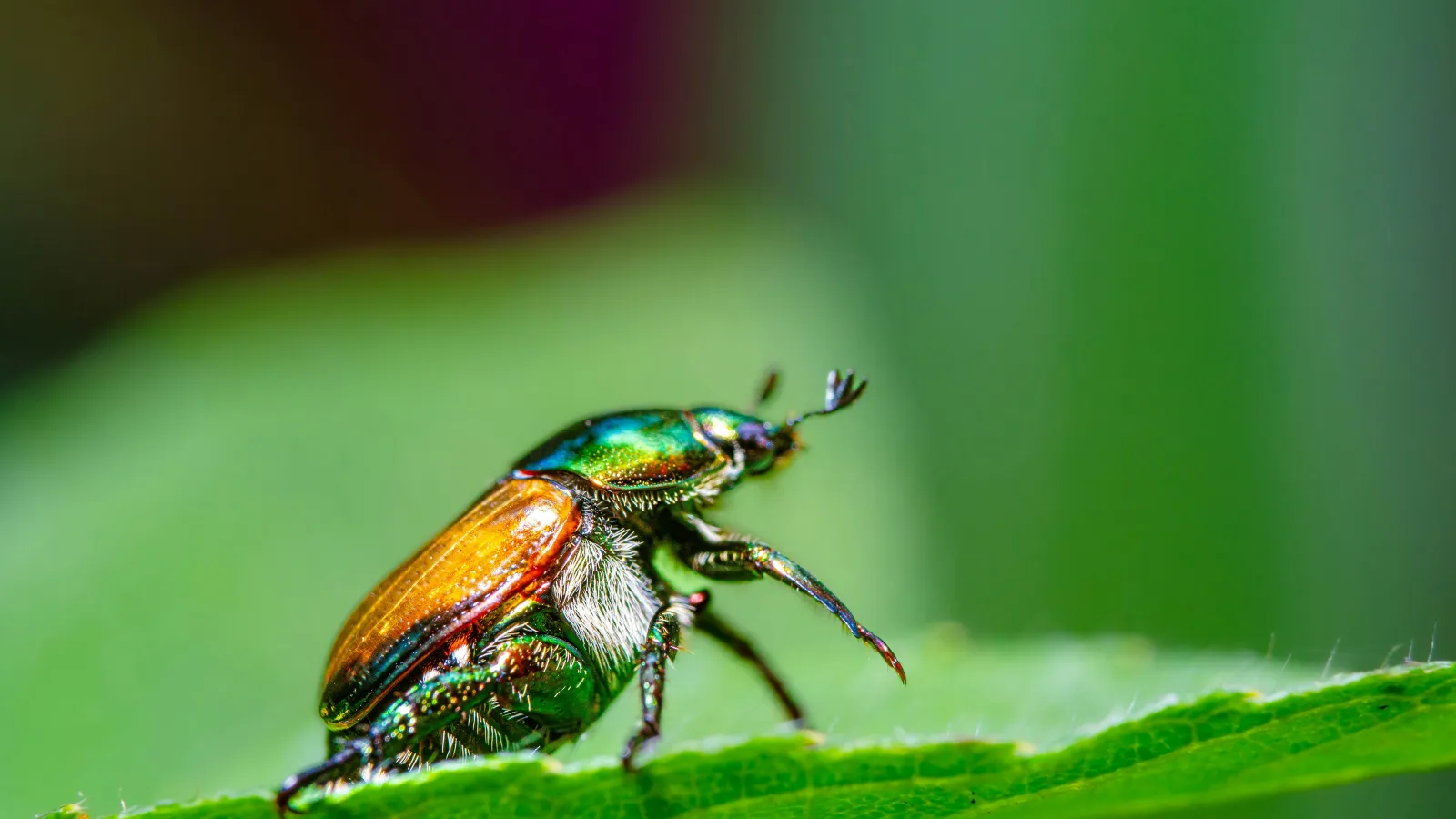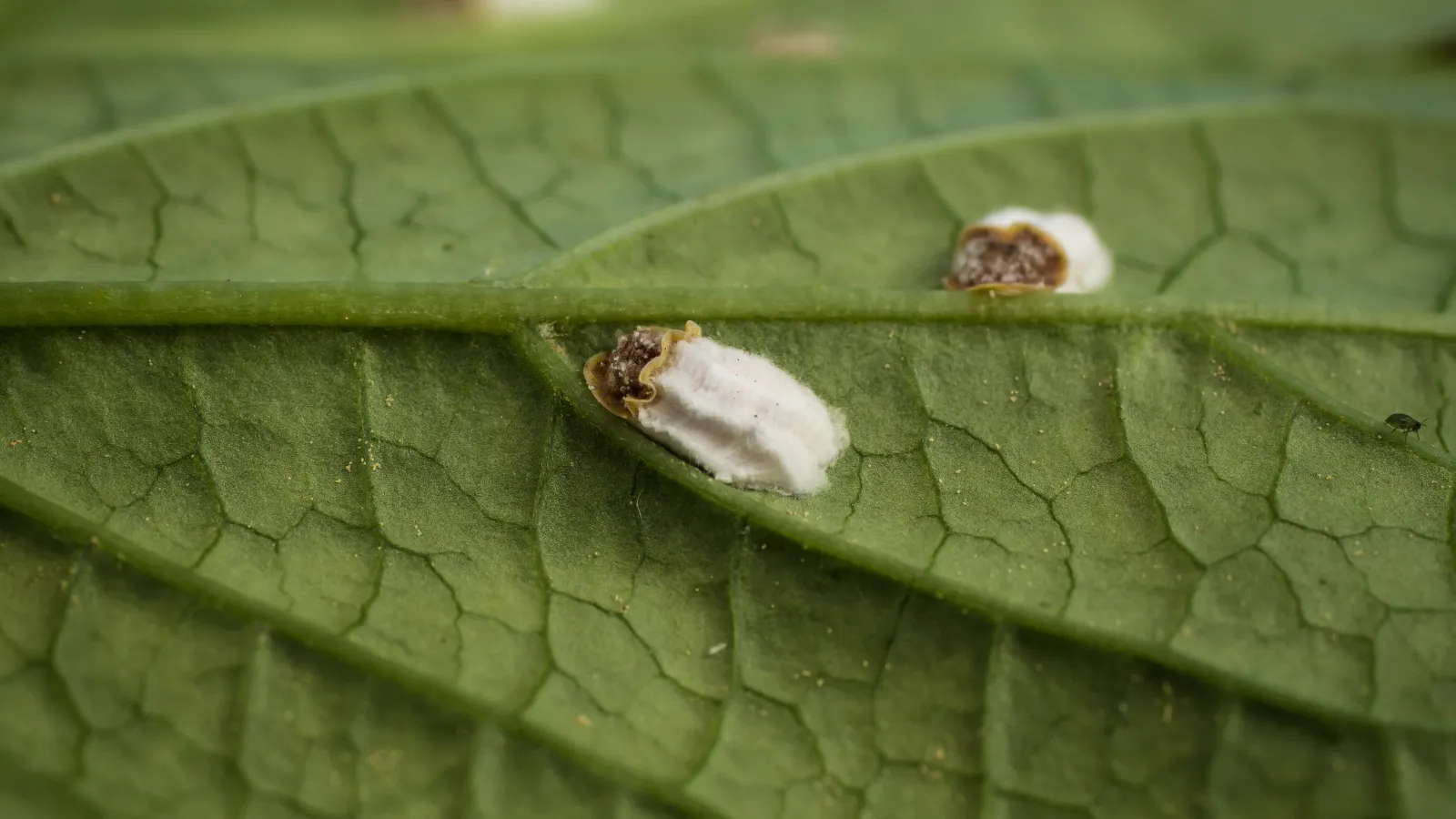
Are Scale Insects Bugging Your Landscape?
Some of the most difficult landscape pests to control are scale insects. This is partly because there are about 8000 species of scale insects, making them a large and diverse group. Yep, 8000! So it's not a matter of if your trees and shrubs will deal with scale of some kind, but when!
Scale insects come in a variety for forms, including armored, soft, cottony, waxy, even mealy bugs which are closely related. Today, we will focus on armored and soft scales.
Armored scales have a hard shield-like cover that is not attached to the body of the insect. Examples of common armored scales commonly found in our area are euonymus and tea scales. Armored scales are more difficult to control once they mature because of their shield-like exterior. Common soft scales in the southeast include cottony maple and magnolia scales.
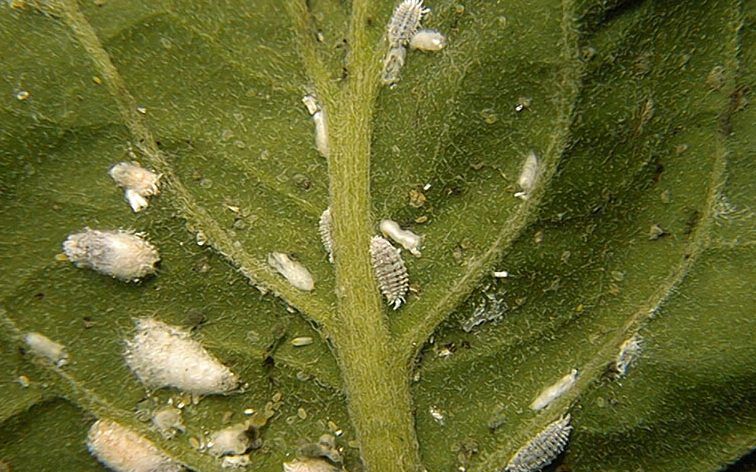
Common Types of Scale
- Euonymus scale bugs are commonly found on euonymus, a family of plants often used as ornamentals in a landscape. If not controlled, this scale can be severely damaging. But the good news, it's fairly easy to prevent and control. Euonymus scale bugs are gray to brown and usually found on the lower branches or on the new leaves of several species of euonymus. They are too small to spot during most of their life cycle, so are most often identified when you see white to yellow blotches on the top of the plant's leaves. If the infestation is really bad, the plant may appear water-stressed with leaves yellowing, drooping, and even falling off. There are often two generations per year.
- Tea scale loves flowering camellias, but can also infest hollies and a few other shrubs. Adult females are about 1/10 inch long and have a hard brown covering on their bodies. The males produce white waxes that cover their bodies and in heavy infestations, these white waxes make the underside of the leaf appear cottony. The scales attach themselves to the underside of leaves, begin feeding and develop their waxy, protective covers.
- Cottony maple scale are found on the branches of various trees. They are most commonly found on maples, but can also infest oaks, boxelders, dogwoods, sycamores, poplars and others. Cottony maple scale are flat, brown in color and about ⅛" long. They are most noticeable when the female secretes white, waxy, cottony-looking egg sacs-one of their most distinguishing features.
- Magnolia scale is the largest scale in the US-a large, flat, brown insect growing up to ½ inch in length. This soft scale is shiny, tan-brown and smooth. A white mealy wax covers the scale as it grows. As its name suggests, it prefers magnolias as its host. Magnolia scales vary in color from translucent white to brownish-purple color depending on their life cycle stage.

Honeydew
Although both armored and soft scale insects suck sap from plants, robbing them of essential nutrients, the soft scale bugs excrete large amounts of honeydew. This sticky substance is the excretion of the scale "sucking" the juices from the plant.
Sooty Mold
But wait! There's more! The honeydew attracts ants and encourages the growth of sooty mold, a black-colored fungus that interferes with photosynthesis. (Side note, aphids also secrete a similar honeydew which can cause sooty mold.) Wet conditions make the spores germinate and sooty mold grows on the plants. Warm temperatures and dry weather increase the prevalence of sooty molds. While the mold doesn't damage the plant, it creates conditions that can greatly weaken the plant.
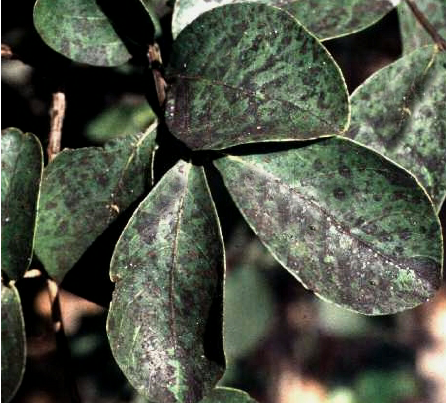
Controlling Scale
Scale-damaged plants look withered and sickly so if you're wondering if you have scale insects, check the bark of plants. If there is a soft body underneath the scale cover, it is an armored scale. If the whole body comes up and can be squished, it's probably a soft scale. For control of all kinds of scale, we recommend professional shrub care for prevention and control. Appropriate timing is imperative as it's best to treat for scale in spring or early summer during the crawler stage. Once armored scales have grown their hard, protective outer shell, horticultural oils should be used. Some dormant oils can be used for soft scale. If you choose to go the DIY route, you can try rubbing them off with your finger or apply rubbing alcohol to a cotton ball and wipe the leaf clean of all visible insects.
Get Professional Help
If the infestation is too large to manage, get rid of the infected bush or reach out to us for professional help. We offer finely tuned fertilization, insect, and disease control services for your trees and shrubs. Water, sunlight, and other nutrients all play an important role in keeping your trees and shrubs healthy; however, insects and disease can still invade your trees and shrubs quickly, so it's important to protect them year-round. Our Program promotes bolder, brighter colors and healthier plants, creating a more beautiful landscape. Contact us today!
Photo credit: Alabama Cooperative Extension System, Matt Borden, LSU Ag Center
